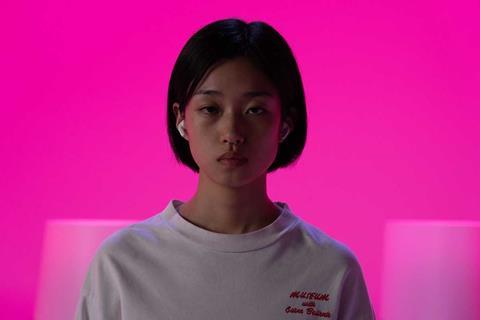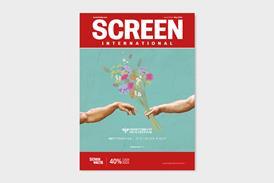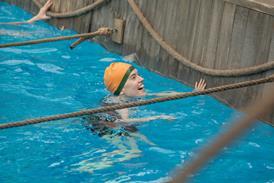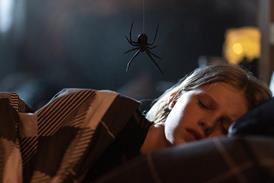A young Japanese woman struggles with her claustrophobic Tokyo life in this Directors’ Fortnight title

Dir/scr. Yoko Yamanaka. Japan. 2024. 137mins
To a certain point, Desert of Namibia – a Japanese film which has nothing to do with the Southwest African country – shares a lot with its protagonist, Kana. There’s a stubbornness, a feisty pugnaciousness, a self-involvement which increasingly excludes anyone who comes into her, or its, orbit. A refusal to conform, taking 137 minutes to tell a story about a 21-year-old Japanese beauty technician who is casually angry with her life but won’t express it. Directors Fortnight 2024 continues its relentless pursuit of the new by programming Yoko Yamanaka’s second feature, but a vague referencve to mental health problems doesn’t come in enough time to rescue either Kana or the film.
Inert female domestic cruelty may make Deserts Of Namibia a talking point at home
Yuumi Kawai plays Kana, a gazelle-like Japanese girl (of Chinese heritage) whose self-involvement is total. The most interesting thing about her is that she turns out to be mean: she’s cruel to her boyfriends and those around her, she’s a casual liar, and she can be violent – anything to provoke a reaction. This much we don’t see very often, not just from Japanese cinema but in the global marketplace. Inert female domestic cruelty may make Deserts Of Namibia a talking point at home, and in Asia, where the prestige conferred by the Directors Fortnight selection will it help secure festival berths.
The link to Namibia is small enough to be insignificant: a shot of Kana’s phone where she seems to be watching live footage of a jungle watering hole, and a post-credit sequence. Production notes claim the film shot for two weeks in Tokyo, with a two-week edit. Yamanaka’s first film, Amiko (2017) was reportedly made for $2500 and saw her notch a record as the youngest director to be programmed in Berlinale Forum, at the age of 20. It was 66 minutes long. There’s probably an excellent 66 minute film in Desert Of Namibia as well. Yamanaka certainly has talent. But fine-honing is not a strong point.
We first see Kana typically clad in her over-sized t-shirt, swinging her way through Tokyo to meet a friend. She ditches the pal – upset about a friend’s suicide that Kana could care less about – to met her boyfriend Hayashi (Daichi Kaneko). They drink red wine, she vomits out of a taxi and is cared for at home by handsome and uxorious Honda (Kanichiro). His relationship with her seems brotherly but, no, it turns out that he is also her boyfriend and Kana is cheating on him. She eventually does a moonlight flit to move in with the harder-to-get Hayashi but, once he succumbs to her slightly elusive charms, she’s dissatisfied there too, eventually kicking him in order to get a kick out of life.
Moving from one cramped, messy apartment to the next, and between tiny laser hair removal cubicles, Desert Of Namibia – which is shot in a 4:3 square format – couldn’t feel further removed from its title. Hayashi even works from home, which makes the film feel smaller and more claustrophobic, if that was possible. Both boyfriends are slavish, in thrall to her, but the more they chase, the more she despises them. The film briefly flashes into action when Kana storms out of the apartment and falls down the stairs, but it doesn’t give her any resolution. She ups the ante, quitting her job and demanding Hayashi support her financially, as well as picking up her tossed-away chopsticks from the floor. That doesn’t work either.
The messages here are klaxon-level clear. Japanese conformity is killing Kana and her generation as they twist themselves into shapes that don’t fit. There is talk of a bipolar/borderline diagnosis eventually, but it’s too under-developed to give the film much focus. The future is bleak: the Japanese population crisis is referred to in talk of two abortions, but it’s unclear if one of them ever really took place.
Namibia, meanwhile, has a very small film industry. Thus far, it has had no films at Cannes, where it might eventually like to claim back its good name.
Production companies: Happiness Phantom Studios
International sales: Happinet Phantom Studios
Producers: Keisuke Konishi, Shinji Ogawa, Masafumi Yamada, Tokushi Suzuki
Cinematography: Shin Yonekura
Production design: Ran Kobayashi
Editing: Banri Nagase
Music: Takuma Watanabe
Main cast: Yuumi Kawai, Daichi Kaneko, Kanichiro, Yuzumi Shintani, Keisuke Horibe, Makiki Watanabe
























